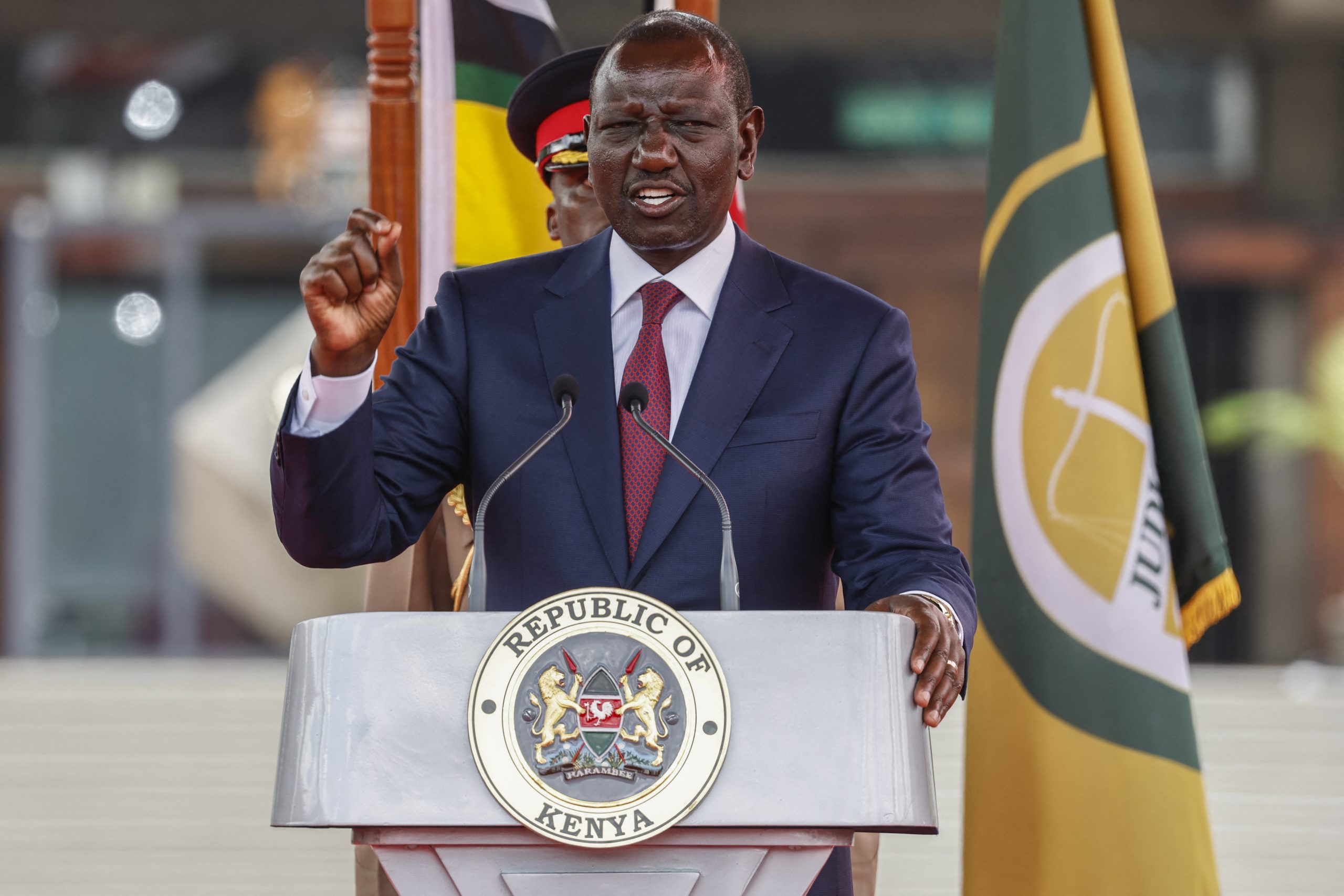Nairobi, Kenya – In a significant step to bolster national security, the Kenyan government has officially designated the Muslim Brotherhood and Hizb-ut-Tahrir as terrorist organizations under the Prevention of Terrorism Act (Cap. 59B). This move, announced on September 19, 2025, aims to prevent the spread of radical ideologies and block extremist groups from gaining a foothold in the country.

The 52-year-old millionaire served as interior minister for more than two years before taking over as deputy president on November 1, 2024 following the historic impeachment of his predecessor, Rigathi Gachagua. (Photo by SIMON MAINA / AFP)
Global Implications
Kenya’s decision to proscribe these groups aligns with similar moves by countries such as Egypt, Saudi Arabia, the United Arab Emirates, Bahrain, and Russia, which have also designated the Muslim Brotherhood as a terrorist organization. This development underscores the growing international concern about the Brotherhood’s ideology and its potential to inspire extremist activities.
Tougher Security Measures
The declaration empowers Kenyan security agencies to take decisive action against suspected members and supporters of the proscribed groups. This includes freezing assets, banning meetings, and prosecuting individuals who associate with these organizations. The move is expected to enhance Kenya’s counter-terrorism efforts and prevent potential threats.
A Proactive Approach
Kenya’s decision to preemptively designate these groups as terrorist entities reflects the country’s commitment to maintaining national security and stability. By taking proactive measures, Kenya aims to prevent the kind of radical mobilization that has affected other regions.
Context and Background
The move comes amid Kenya’s ongoing efforts to combat terrorism, particularly in the wake of deadly attacks attributed to al-Shabaab, a Somalia-based al-Qaeda affiliate. Kenya has expanded its military operations in Somalia, boosted intelligence sharing, and strengthened border security to counter the threat of terrorism.
A Stronger Legal Framework
The Prevention of Terrorism Act (Cap. 59B) provides a robust legal framework for Kenya to tackle terrorism. By invoking Section 3(3) of the Act, the government can now take decisive action against individuals and groups that pose a threat to national security.
As Kenya continues to face the threat of terrorism, this development marks a significant step in the country’s efforts to protect its citizens and maintain stability in the region





